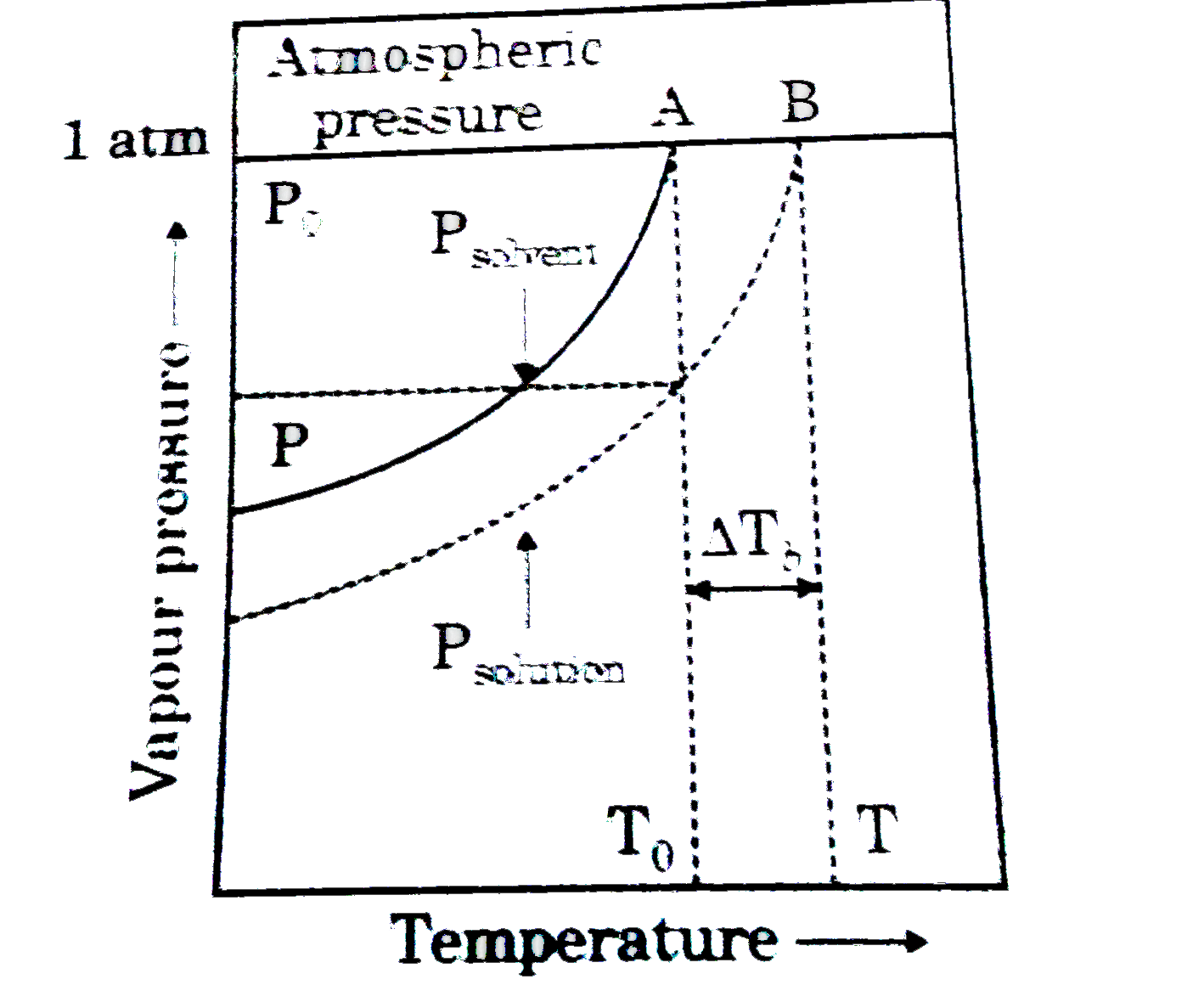Depression in f.p. of an aqueous urea solutio is 1.86∘.(Kf=1.86∘mol−1kg) Hence, mole− fraction of urea in this soluiton is :
0.982
0.567
0.943
0.018
The correct Answer is:4
To find the mole fraction of urea in the solution, we can follow these steps:
Step 1: Understand the relationship between freezing point depression and molality
The formula for freezing point depression is given by:
ΔTf=Kf⋅m
where:
- ΔTf is the depression in freezing point,
- Kf is the cryoscopic constant,
- m is the molality of the solution.
Step 2: Substitute the known values
From the problem, we know:
- ΔTf=1.86∘C
- Kf=1.86mol−1kg
Substituting these values into the equation:
1.86=1.86⋅m
Step 3: Solve for molality (m)
To find m, we can rearrange the equation:
m=1.861.86=1mol/kg
Step 4: Calculate the number of moles of urea
Since the molality is 1 mol/kg, this means there is 1 mole of urea in 1 kg of water.
Step 5: Calculate the number of moles of water
The molar mass of water (H₂O) is calculated as follows:
- H: 1 g/mol × 2 = 2 g/mol
- O: 16 g/mol × 1 = 16 g/mol
- Total: 2 + 16 = 18 g/mol
In 1 kg (1000 g) of water, the number of moles of water is:
Moles of water=1000g18g/mol≈55.56mol
Step 6: Calculate the mole fraction of urea
The mole fraction of urea (Xurea) is given by the formula:
Xurea=moles of ureamoles of urea+moles of water
Substituting the values we have:
Xurea=11+55.56=156.56≈0.0177
Step 7: Final answer
Thus, the mole fraction of urea in the solution is approximately:
Xurea≈0.018
The formula for freezing point depression is given by:
ΔTf=Kf⋅m
where:
- ΔTf is the depression in freezing point,
- Kf is the cryoscopic constant,
- m is the molality of the solution.
From the problem, we know:
- ΔTf=1.86∘C
- Kf=1.86mol−1kg
1.86=1.86⋅m
To find m, we can rearrange the equation:
m=1.861.86=1mol/kg
Since the molality is 1 mol/kg, this means there is 1 mole of urea in 1 kg of water.
The molar mass of water (H₂O) is calculated as follows:
- H: 1 g/mol × 2 = 2 g/mol
- O: 16 g/mol × 1 = 16 g/mol
- Total: 2 + 16 = 18 g/mol
Moles of water=1000g18g/mol≈55.56mol
The mole fraction of urea (Xurea) is given by the formula:
Xurea=moles of ureamoles of urea+moles of water
Substituting the values we have:
Xurea=11+55.56=156.56≈0.0177
Thus, the mole fraction of urea in the solution is approximately:
Xurea≈0.018
Topper's Solved these Questions
Similar Questions
Figure explains elevation in boiling point when a non-volatile solute is added to a solvent. Variation of vapour pressure with temperaure and elevation in boiling point is marked.

Elevation in b.p of an aqueous urea solution is 0.52∘(Kb=0.52∘mol−1kg). Hence, mole fraction of urea in this solution is:
View SolutionElevation in boiling point of an aqueous solution of urea is 0.52(kbfor water=0.52Kmolality−1). The mole fraction of urea in this solution is :
View SolutionAn aqueous solution freezes at
−0.186∘C(Kf=1.86∘ ,Kb=0.512∘. What is the elevation in boiling point?
View SolutionMole fraction of a non-electrolyte in aqueous solution is 0.07. If Kf is 1.86∘mol−1kg, depression if f.p.,ΔTf, is:
View SolutionA 0.1 molal aqueous solution of a weak acid is 30% ionized. If Kf for water is 1.86∘C/m, the freezing point of the solution will be.
View SolutionDensity of 1M solution of a non-electrolyte C6H12O6 is 1.18 g/mL . If Kf(H2O) is 1.86∘mol−1 kg , solution freezes at :
View SolutionThe mole fraction of urea in an aqueous urea solution containing 900 g of water is 0.05. If the density of the solution is 1.2gcm−3, the molarity of urea solution is __________
Given data: Molar masses of urea and water are 60gmol−1 and 18gmol−1 , respectively)
View Solution0.5 molal aqueous solution of a weak acid (HX) is 20% ionised. If Kf for water is 1.86Kkgmol−1, the lowering in freezing point of the solution is
View SolutionPtCl4.6H2O can exist as a hydrated complex. 1m aqueous solution has the depression in freezing point of 3.72∘. Assume 100% ionization and Kf(H2O)=1.86∘mol−1kg, then the complex is
View SolutionFor an aqueous solution freezing point is −0.186∘C. The boiling point of the same solution is (Kf=1.86∘mol−1kg) and (Kb=0.512mol−1kg)
View Solution

